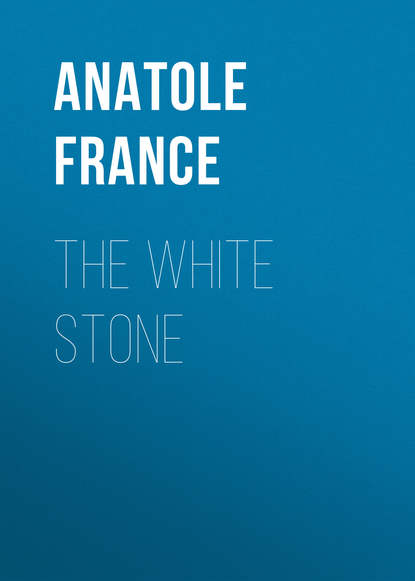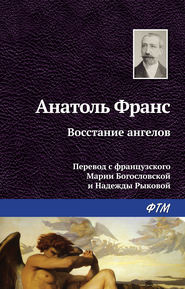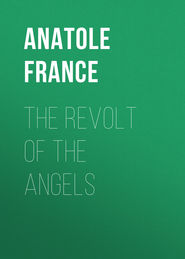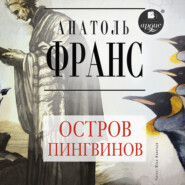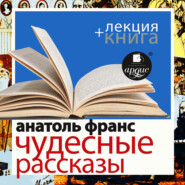По всем вопросам обращайтесь на: info@litportal.ru
(©) 2003-2024.
✖
The White Stone
Настройки чтения
Размер шрифта
Высота строк
Поля
“While I think of it!” exclaimed Lollius. “When our gentle Canidia, the flower of the matrons of the Esquiline, sends her beautiful slaves to the hot baths, she compels them to wear drawers, as she grudges everybody even a view of what is most dear to her about their bodies. By Pollux, she will be the cause of their being taken for Jews, an insulting supposition, even for a slave.”
Lucius Cassius resumed, revealing the irritation which consumed him:
“I cannot say whether the Jewish folly will overtake the whole world. But it is past endurance that this madness should spread among the ignorant, that it should be tolerated in the Empire, that this fœtid race, which has descended to every form of turpitude, absurd and sordid in its manners and customs, impious and villainous in its laws, and execrated by the immortal gods, should be suffered to exist. The obscene Syrian is corrupting the City of Rome. We have cast aside with contempt our ancient usages, and the salutary methods of discipline of our ancestors. We no longer serve these masters of the earth, who conquered it for us. Which of us still believes in the haruspices? Who is there with any respect for the augurs? Who shows reverence to Mars and the divine Twins? Oh the sad neglect of our religious duties! Italy has repudiated her indigenous gods, and her tutelary genii. She is henceforth on all sides at the mercy of foreign superstitions, and is handed over defenceless to the impure horde of oriental priests. Alas, did Rome conquer the world only to be conquered by the Jews? Warnings have assuredly not been lacking. The overflowing of the Tiber and the grain famine are certainly not doubtful manifestations of the divine ire. No day passes without its sinister presage. The earth quakes, the sun is veiled, while lightning flashes in a clear sky. Wonders follow upon wonders. Birds of ill omen have been seen to perch on the summit of the Capitol. An ox has been heard to speak on the Etruscan shore. Women have brought forth monsters; a wailing voice has sounded amid the recreations of the theatre. The statue of Victory has dropped the reins of her chariot.”
“The hosts of the celestial palaces,” remarked Lollius, “have strange ways of making themselves heard. If they desire a little more incense, or sigh for a few more fat offerings, let them say so plainly, instead of expressing their wishes by means of thunder, clouds, crows, bronze statues, and two-headed children. Moreover, you must admit, Lucius, theirs is a far too one-sided part when they presage the evils threatening us, since, in the natural course of things, not a day goes by but what brings some individual or public misfortune.”
Gallio exhibited distress at the sorrows of Cassius.
“Claudius,” he remarked, “Claudius, although he is always dozing, has deeply felt this great peril. He has complained to the Senate of the contempt into which ancient usages have been suffered to fall. Alarmed at the progress of foreign superstitions, the Senate has, on his recommendation, re-established haruspices. But it is not sufficient that the observance of the ceremonial rites of worship should be restored; rather is it necessary once more to instil into men’s hearts their primitive purity. The souls of virtuous men constitute the proper shrine of the gods in this world. Give a home within your hearts to past virtues once more, simplicity, good faith, love of the public welfare, and the gods will immediately re-enter them. You shall then yourselves be temples and altars.”
He spoke, and, taking leave of his friends, entered his litter, which, for some little time past, had been awaiting him near a clump of myrtle-bushes to convey him to the tribunal.
His friends had risen from their seats, and leaving the grounds, followed leisurely behind him under a double portico, so disposed as to afford shadow at all hours of the day, and leading from the walls of the villa to the basilica where the proconsul dispensed justice.
By the way, Lucius Cassius expressed to Mela his regret at the oblivion into which the ancient methods of discipline had fallen.
Marcus Lollius, placing a hand on the shoulder of Apollodorus, said:
“It seems to me that neither our gentle Gallio nor Mela, nor even Cassius, have stated their reasons for their deep hatred of the Jews. I think I know, and I am going to tell you, most dear Apollodorus. The Romans who offer up to the gods a white sow ornamented with white bands, execrate the Jews who refuse to partake of pork. It is not in vain that the fates sent to the pious Æneas a white female boar as a presage. Had the gods not studded with oaks the wild realms of Evander and Turnus, Rome would not be to-day the mistress of the world. The acorns of Latium fattened the swine whose flesh has alone appeased the insatiable hunger of the magnanimous descendants of Remus. Our Italians, whose bodies are built on boars and pigs, feel offended at the proud abstinence of the Jews, who persist in casting aside as unclean victuals the fat sounders, beloved of old Cato, which furnish food to the masters of the Universe.”
Thus discoursing pleasantly, and enjoying the kindly shade, the four friends reached the furthermost end of the portico, when of a sudden the Forum appeared before them in a glitter of light.
At that early hour, it was all astir with the coming and going of noisy crowds. In the centre of the square stood a bronze Minerva on a pedestal on which were sculptured the Muses, and to the right and to the left stood a Mercury and a bronze Apollo, the work of Hermogenes of Cythera. A Neptune with a green beard arose from the centre of a basin. At the feet of the god, a dolphin vomited forth water.
The Forum was surrounded in all directions by monuments, the high columns and the arches of which revealed the Roman style of architecture. Facing the portico by way of which Mela and his friends had come, the Propylæ, surmounted by two gilded chariots, formed the boundary of the public square, and led, by way of marble steps, to the broad and straight road of the harbour of Lechæum. On either side of these heroic gates rose in kingly fashion the painted pediments of the sanctuaries, the Pantheon, and the temple of Artemis of Ephesus. The temple of Octavia, the sister of Augustus, dominated the Forum, and looked upon the sea.
Between it and the basilica ran an insignificant little street. The building rose over two stories of arcades supported by pillars flanked with Doric half-columns forming a square. The Roman style, which stamped its character upon all the other buildings of the city, was patent. There remained of the pristine Corinth nothing but the calcined ruins of an old temple.
The lower arcades of the basilica were open and served as shops to sellers of fruit, vegetables, oil, wine and fried foods, to bird-fanciers, jewellers, booksellers, and barbers. Money-changers sat at little tables laden with gold and silver coins. From the gloomy hollow of these stalls emerged shouts, laughter, hailings, the noise of disputes, and pungent odours. On the marble steps, wherever their slabs were tinted blue by the shade, loafers shook dice or tossed knuckle-bones, suitors paced to and fro with anxious mien, sailors gravely looked for the pleasures upon which they should squander their wages, while quidnuncs read news from Rome written for them by frivolous Greeks. Blended with this crowd of Corinthians and foreigners, numerous blind beggars persistently obtruded themselves, as well as callow and rouged youths, matchsellers and crippled sailors from whose necks depended a picture of the wreck of their ships. Doves flew in flocks from the roof of the basilica down to the large open spaces on which the sun shone, and picked up grain between the cracks of the heated flagstones.
A girl of twelve, dark and velvety as a pansy of Xanthus, placed on the ground her little brother, as yet unable to walk, put beside him a chipped bowl filled with porridge and a wooden spoon, saying to him:
“Eat, Comatas, eat and keep quiet, or that red horse will have you.”
Then, holding an obolus in her hand, she ran towards the fish-dealer, whose wrinkled face and naked breast, the colour of saffron, appeared amid baskets lined with seaweed.
While she was thus engaged, a dove hovering about the little Comatas got its talons entangled in the child’s locks. The boy began to cry, and to call his sister to his help, screaming in a voice choked with sobs:
“Joessa! Joessa!”
But Joessa heard him not. She was rummaging in the old man’s baskets, amid the fish and the shell-fish, for something that would improve the taste of her stale bread. Naturally she did not pick out a peacock-fish or a smaris, whose flesh is most delicate, but which cost money. She brought away in the hollow of her gown, which she had tucked up, three handfuls of sea-urchins and sticklebacks.
Meanwhile little Comatas, his mouth wide open, and drinking his own tears, was still bawling:
“Joessa! Joessa!”
Unlike Jove’s eagle, the bird of Venus did not carry off little Comatas into the glorious skies. It left him on the earth, taking with it in its flight, between its pink talons, three golden hairs from his matted locks.
The child, with cheeks glistening with tears and begrimed with dust, clenching his wooden spoon in his tiny fists, was sobbing beside his overturned bowl.
Annæus Mela, followed by his three friends, had reached the top of the basilica’s steps. Alike heedless of the noise and stir of the idle multitude, he was imparting information to Cassius in regard to the future renovation of the universe.
“On a day determined by the gods,” he said, “the things existing to-day, whose order and disposition claim our attention, will be destroyed. Stars will clash with stars, all matters composing the earth, the air, and the waters will be consumed in one conflagration. Human souls, imperceptible débris amid the universal destruction, will be resolved anew into their primitive elements. An entirely new world…”
As he uttered the words, Annæus Mela stumbled against a sleeper stretched out in the shade. It was an old man who had artistically gathered about his dust-covered body the ragged remnants of his cloak. His wallet, his sandals, and his stick lay beside him.
The proconsul’s brother, ever courteous and kindly, even to men of the lowliest class, was about to apologise, but the recumbent individual did not allow him time to do so.
“Try and see where you put your feet, you brute,” he exclaimed, “and give alms to the philosopher Posocharis.”
“I perceive a wallet and a stick,” smilingly replied the Roman, “but so far I do not see any philosopher.”
Just as he was about to toss a piece of silver to Posocharis, Apollodorus stayed his hand, saying:
“Do not give him anything, Annæus. It is not a philosopher; nay, not even a man.”
“But I am one,” replied Mela, “if I give him money, and he is a man if he takes this coin. For, alone among all animals, man does both these things. And can you not see that for the sake of a small coin I satisfy myself that I am a better man than he? Your master teaches that he who gives is better than he who receives.”
Posocharis took the coin. Then he hurled coarse invectives at Annæus Mela and his companions, stigmatising them as arrogant and as debauchees, and referring them to the jugglers and harlots who walked past them with undulating hips. Then, baring to the navel his hairy body, and drawing over his face his tattered cloak, he once more stretched himself out at full length on the pavement.
“Would it not interest you,” asked Lollius of his companions, “to hear those Jews expound their dispute in the prætorium?”
They replied that they entertained no such curiosity, preferring to stroll under the portico, while waiting for the proconsul, who would doubtless not be long in coming out.
“I am with you, my friends,” said Lollius. “We shall not miss anything very interesting.”
“Moreover,” he went on to say, “the Jews who have come from Cenchreæ to accompany the suitors are not all in the basilica. Here comes one who is recognisable by his beaked nose and his forked beard. He is in as fine a state of frenzy as Pythia herself.”
Lollius was pointing with both look and finger at a lean stranger, poorly clad, who was vociferating under the portico, in the midst of a railing mob.
“Men of Corinth, you place a vain trust in your wisdom, which is naught but madness. You follow blindly the precepts of your philosophers who teach you death, and not life. You do not observe the natural law, and in order to punish you, God has delivered you unto unnatural vices…”
A sailor, who had just joined the group of spectators, recognised the man, for, with a shrug of the shoulders, he muttered:
“Why, ’tis Stephanas, the Jew of Cenchreæ, who brings once more some extraordinary piece of news from his trip to the skies, into which he ascended, if we are to credit him.”
And Stephanas was teaching the people.
“The Christian is not bound by law and concupiscence. He is exempt from damnation through the mercy of God, who sent his only son to assume a sinful body, in order to destroy sin. But ye shall only be delivered if, breaking with the flesh, you live according to the spirit.
“The Jews observe the laws, and believe that they are saved by their works. But it is their faith which saves them, and not their works. Of what use is it to them to be circumcised in fact, if their heart is uncircumcised?
“Men of Corinth, glory in the faith, and ye shall be incorporated into the family of Abraham.”
The mob was beginning to laugh and jeer at these obscure utterances. Still the Jew continued prophesying in hollow tones. He was announcing a great manifestation of wrath and the all-destroying fire which was to consume the earth.
“And these things shall come to pass in my lifetime,” he cried, “and I shall witness them with mine own eyes. The hour has come for us to awaken from our sleep. The night has passed, and the day is dawning. The Saints will rejoice in Heaven, and those who have not believed in Jesus crucified shall perish.”
Lucius Cassius resumed, revealing the irritation which consumed him:
“I cannot say whether the Jewish folly will overtake the whole world. But it is past endurance that this madness should spread among the ignorant, that it should be tolerated in the Empire, that this fœtid race, which has descended to every form of turpitude, absurd and sordid in its manners and customs, impious and villainous in its laws, and execrated by the immortal gods, should be suffered to exist. The obscene Syrian is corrupting the City of Rome. We have cast aside with contempt our ancient usages, and the salutary methods of discipline of our ancestors. We no longer serve these masters of the earth, who conquered it for us. Which of us still believes in the haruspices? Who is there with any respect for the augurs? Who shows reverence to Mars and the divine Twins? Oh the sad neglect of our religious duties! Italy has repudiated her indigenous gods, and her tutelary genii. She is henceforth on all sides at the mercy of foreign superstitions, and is handed over defenceless to the impure horde of oriental priests. Alas, did Rome conquer the world only to be conquered by the Jews? Warnings have assuredly not been lacking. The overflowing of the Tiber and the grain famine are certainly not doubtful manifestations of the divine ire. No day passes without its sinister presage. The earth quakes, the sun is veiled, while lightning flashes in a clear sky. Wonders follow upon wonders. Birds of ill omen have been seen to perch on the summit of the Capitol. An ox has been heard to speak on the Etruscan shore. Women have brought forth monsters; a wailing voice has sounded amid the recreations of the theatre. The statue of Victory has dropped the reins of her chariot.”
“The hosts of the celestial palaces,” remarked Lollius, “have strange ways of making themselves heard. If they desire a little more incense, or sigh for a few more fat offerings, let them say so plainly, instead of expressing their wishes by means of thunder, clouds, crows, bronze statues, and two-headed children. Moreover, you must admit, Lucius, theirs is a far too one-sided part when they presage the evils threatening us, since, in the natural course of things, not a day goes by but what brings some individual or public misfortune.”
Gallio exhibited distress at the sorrows of Cassius.
“Claudius,” he remarked, “Claudius, although he is always dozing, has deeply felt this great peril. He has complained to the Senate of the contempt into which ancient usages have been suffered to fall. Alarmed at the progress of foreign superstitions, the Senate has, on his recommendation, re-established haruspices. But it is not sufficient that the observance of the ceremonial rites of worship should be restored; rather is it necessary once more to instil into men’s hearts their primitive purity. The souls of virtuous men constitute the proper shrine of the gods in this world. Give a home within your hearts to past virtues once more, simplicity, good faith, love of the public welfare, and the gods will immediately re-enter them. You shall then yourselves be temples and altars.”
He spoke, and, taking leave of his friends, entered his litter, which, for some little time past, had been awaiting him near a clump of myrtle-bushes to convey him to the tribunal.
His friends had risen from their seats, and leaving the grounds, followed leisurely behind him under a double portico, so disposed as to afford shadow at all hours of the day, and leading from the walls of the villa to the basilica where the proconsul dispensed justice.
By the way, Lucius Cassius expressed to Mela his regret at the oblivion into which the ancient methods of discipline had fallen.
Marcus Lollius, placing a hand on the shoulder of Apollodorus, said:
“It seems to me that neither our gentle Gallio nor Mela, nor even Cassius, have stated their reasons for their deep hatred of the Jews. I think I know, and I am going to tell you, most dear Apollodorus. The Romans who offer up to the gods a white sow ornamented with white bands, execrate the Jews who refuse to partake of pork. It is not in vain that the fates sent to the pious Æneas a white female boar as a presage. Had the gods not studded with oaks the wild realms of Evander and Turnus, Rome would not be to-day the mistress of the world. The acorns of Latium fattened the swine whose flesh has alone appeased the insatiable hunger of the magnanimous descendants of Remus. Our Italians, whose bodies are built on boars and pigs, feel offended at the proud abstinence of the Jews, who persist in casting aside as unclean victuals the fat sounders, beloved of old Cato, which furnish food to the masters of the Universe.”
Thus discoursing pleasantly, and enjoying the kindly shade, the four friends reached the furthermost end of the portico, when of a sudden the Forum appeared before them in a glitter of light.
At that early hour, it was all astir with the coming and going of noisy crowds. In the centre of the square stood a bronze Minerva on a pedestal on which were sculptured the Muses, and to the right and to the left stood a Mercury and a bronze Apollo, the work of Hermogenes of Cythera. A Neptune with a green beard arose from the centre of a basin. At the feet of the god, a dolphin vomited forth water.
The Forum was surrounded in all directions by monuments, the high columns and the arches of which revealed the Roman style of architecture. Facing the portico by way of which Mela and his friends had come, the Propylæ, surmounted by two gilded chariots, formed the boundary of the public square, and led, by way of marble steps, to the broad and straight road of the harbour of Lechæum. On either side of these heroic gates rose in kingly fashion the painted pediments of the sanctuaries, the Pantheon, and the temple of Artemis of Ephesus. The temple of Octavia, the sister of Augustus, dominated the Forum, and looked upon the sea.
Between it and the basilica ran an insignificant little street. The building rose over two stories of arcades supported by pillars flanked with Doric half-columns forming a square. The Roman style, which stamped its character upon all the other buildings of the city, was patent. There remained of the pristine Corinth nothing but the calcined ruins of an old temple.
The lower arcades of the basilica were open and served as shops to sellers of fruit, vegetables, oil, wine and fried foods, to bird-fanciers, jewellers, booksellers, and barbers. Money-changers sat at little tables laden with gold and silver coins. From the gloomy hollow of these stalls emerged shouts, laughter, hailings, the noise of disputes, and pungent odours. On the marble steps, wherever their slabs were tinted blue by the shade, loafers shook dice or tossed knuckle-bones, suitors paced to and fro with anxious mien, sailors gravely looked for the pleasures upon which they should squander their wages, while quidnuncs read news from Rome written for them by frivolous Greeks. Blended with this crowd of Corinthians and foreigners, numerous blind beggars persistently obtruded themselves, as well as callow and rouged youths, matchsellers and crippled sailors from whose necks depended a picture of the wreck of their ships. Doves flew in flocks from the roof of the basilica down to the large open spaces on which the sun shone, and picked up grain between the cracks of the heated flagstones.
A girl of twelve, dark and velvety as a pansy of Xanthus, placed on the ground her little brother, as yet unable to walk, put beside him a chipped bowl filled with porridge and a wooden spoon, saying to him:
“Eat, Comatas, eat and keep quiet, or that red horse will have you.”
Then, holding an obolus in her hand, she ran towards the fish-dealer, whose wrinkled face and naked breast, the colour of saffron, appeared amid baskets lined with seaweed.
While she was thus engaged, a dove hovering about the little Comatas got its talons entangled in the child’s locks. The boy began to cry, and to call his sister to his help, screaming in a voice choked with sobs:
“Joessa! Joessa!”
But Joessa heard him not. She was rummaging in the old man’s baskets, amid the fish and the shell-fish, for something that would improve the taste of her stale bread. Naturally she did not pick out a peacock-fish or a smaris, whose flesh is most delicate, but which cost money. She brought away in the hollow of her gown, which she had tucked up, three handfuls of sea-urchins and sticklebacks.
Meanwhile little Comatas, his mouth wide open, and drinking his own tears, was still bawling:
“Joessa! Joessa!”
Unlike Jove’s eagle, the bird of Venus did not carry off little Comatas into the glorious skies. It left him on the earth, taking with it in its flight, between its pink talons, three golden hairs from his matted locks.
The child, with cheeks glistening with tears and begrimed with dust, clenching his wooden spoon in his tiny fists, was sobbing beside his overturned bowl.
Annæus Mela, followed by his three friends, had reached the top of the basilica’s steps. Alike heedless of the noise and stir of the idle multitude, he was imparting information to Cassius in regard to the future renovation of the universe.
“On a day determined by the gods,” he said, “the things existing to-day, whose order and disposition claim our attention, will be destroyed. Stars will clash with stars, all matters composing the earth, the air, and the waters will be consumed in one conflagration. Human souls, imperceptible débris amid the universal destruction, will be resolved anew into their primitive elements. An entirely new world…”
As he uttered the words, Annæus Mela stumbled against a sleeper stretched out in the shade. It was an old man who had artistically gathered about his dust-covered body the ragged remnants of his cloak. His wallet, his sandals, and his stick lay beside him.
The proconsul’s brother, ever courteous and kindly, even to men of the lowliest class, was about to apologise, but the recumbent individual did not allow him time to do so.
“Try and see where you put your feet, you brute,” he exclaimed, “and give alms to the philosopher Posocharis.”
“I perceive a wallet and a stick,” smilingly replied the Roman, “but so far I do not see any philosopher.”
Just as he was about to toss a piece of silver to Posocharis, Apollodorus stayed his hand, saying:
“Do not give him anything, Annæus. It is not a philosopher; nay, not even a man.”
“But I am one,” replied Mela, “if I give him money, and he is a man if he takes this coin. For, alone among all animals, man does both these things. And can you not see that for the sake of a small coin I satisfy myself that I am a better man than he? Your master teaches that he who gives is better than he who receives.”
Posocharis took the coin. Then he hurled coarse invectives at Annæus Mela and his companions, stigmatising them as arrogant and as debauchees, and referring them to the jugglers and harlots who walked past them with undulating hips. Then, baring to the navel his hairy body, and drawing over his face his tattered cloak, he once more stretched himself out at full length on the pavement.
“Would it not interest you,” asked Lollius of his companions, “to hear those Jews expound their dispute in the prætorium?”
They replied that they entertained no such curiosity, preferring to stroll under the portico, while waiting for the proconsul, who would doubtless not be long in coming out.
“I am with you, my friends,” said Lollius. “We shall not miss anything very interesting.”
“Moreover,” he went on to say, “the Jews who have come from Cenchreæ to accompany the suitors are not all in the basilica. Here comes one who is recognisable by his beaked nose and his forked beard. He is in as fine a state of frenzy as Pythia herself.”
Lollius was pointing with both look and finger at a lean stranger, poorly clad, who was vociferating under the portico, in the midst of a railing mob.
“Men of Corinth, you place a vain trust in your wisdom, which is naught but madness. You follow blindly the precepts of your philosophers who teach you death, and not life. You do not observe the natural law, and in order to punish you, God has delivered you unto unnatural vices…”
A sailor, who had just joined the group of spectators, recognised the man, for, with a shrug of the shoulders, he muttered:
“Why, ’tis Stephanas, the Jew of Cenchreæ, who brings once more some extraordinary piece of news from his trip to the skies, into which he ascended, if we are to credit him.”
And Stephanas was teaching the people.
“The Christian is not bound by law and concupiscence. He is exempt from damnation through the mercy of God, who sent his only son to assume a sinful body, in order to destroy sin. But ye shall only be delivered if, breaking with the flesh, you live according to the spirit.
“The Jews observe the laws, and believe that they are saved by their works. But it is their faith which saves them, and not their works. Of what use is it to them to be circumcised in fact, if their heart is uncircumcised?
“Men of Corinth, glory in the faith, and ye shall be incorporated into the family of Abraham.”
The mob was beginning to laugh and jeer at these obscure utterances. Still the Jew continued prophesying in hollow tones. He was announcing a great manifestation of wrath and the all-destroying fire which was to consume the earth.
“And these things shall come to pass in my lifetime,” he cried, “and I shall witness them with mine own eyes. The hour has come for us to awaken from our sleep. The night has passed, and the day is dawning. The Saints will rejoice in Heaven, and those who have not believed in Jesus crucified shall perish.”





